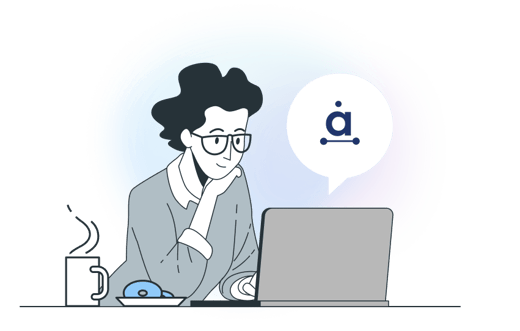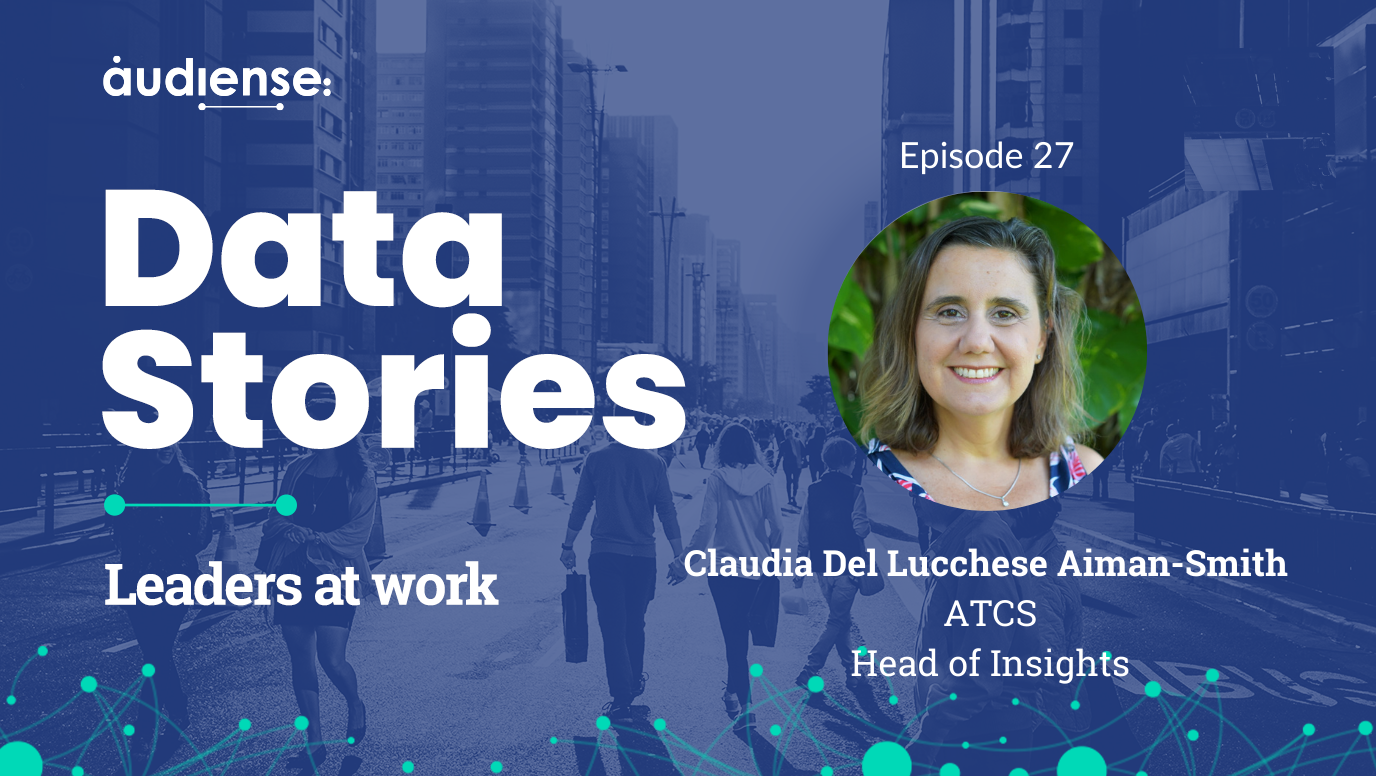[PODCAST] The most important skill is the ability to connect the dots
Data Stories: Leaders at Work is a weekly podcast brought to you by Audiense. Hosted by Rahul Jerome, founder of insight-intelligence.com, the series captures personal anecdotes and career highlights from some of the most talented and brightest minds in the research and insights industry.
On this episode of Data Stories: Leaders at Work, I sit down with Claudia Smith, Head of Insights at ATCS. We discuss her journey, skills that are required for insight researchers, what she has learned so far in her career, and what she aspires to achieve in the future.
First, Claudia shares her role at ATCS, a position she has held for three years. Her job is to build up the insights department of the company and her main focus is on social media as a source of qualitative research. However, for Claudia, she did not arrive at this position in a straightforward path, rather an evolution, so to speak. She initially attended university to study journalism, yet she transitioned to food engineering. During her tenure at university, a sensory and consumer sciences class piqued her interest, which marked the beginning of her love for the insights field. She explains how her career progressed from sensory and consumer sciences to insights and finally innovation within insights. As a Brazilian who lived in various European countries whilst acquiring a diverse array of degrees, Claudia brings a distinct perspective to her field.
Claudia provides a couple of milestones in her life that shaped her career path. The first was the shift from journalism to food engineering in university. This gave her a different way of thinking – from a holistic thinker for journalism to a more specific, analytical thinker for the research realm. Nonetheless, she is appreciative of experiencing both ways of thinking – this flexibility has helped her see different perspectives within her field that she might not have otherwise seen. The second milestone was her move throughout Europe – from Spain to Hungary to Germany, and finally settling in the U.S. gave her a more well-rounded, multicultural perspective. Claudia says that these experiences molded her into the researcher she is today.
The importance of having a mentor
Claudia addresses two main ideas that would have been helpful knowing at the beginning of her career. The first is the power of networking and maintaining relationships throughout a career. She emphasizes that these connections will enrich not only yourself but also your career. She further explains that mentorships and mentorship programmes are beneficial for fostering further development. In hindsight, she realises how important having a mentor is in a professional career and how much it truly shaped the person she is today. Claudia takes advantage of this knowledge now and makes sure to effectively train her proteges so that they can develop their skills as best as possible. The second idea is the sense and importance of building your own brand – for Claudia, there is an art to creating and possessing an identity and uniqueness that will help you to continue to thrive in your career.
Additionally, Claudia discusses a few of her role models who have helped inspire and mold her into the leader she is today. She specifically highlights one of her public figure role models, Sheena Iyengar, and how through her own adversity, helps inspire and motivate others. Sheena’s work provided a new, refreshed perspective for Claudia on certain analyses within her research field. This has given Claudia an even greater understanding of her profession. She was most impressed by a couple of her previous bosses who saw potential skills in her and provided opportunities for her to strengthen and develop those skills.
How to be a great insight practitioner
In the next segment, Claudia lists a couple of skills that are essential to be a great insight practitioner. She emphasizes the ability to connect the dots – putting together the small things to see a better picture is imperative. Yet, the number one skill she looks for in interviews is lateral thinking capability. She also addresses the importance of reading. Possessing knowledge obtained from both inside and outside the research field is very beneficial – you will be more likely to connect the dots and arrive at a solution more efficiently. Another skill she mentions that is equally important is the ability to put oneself in another’s shoes – being able to see multiple perspectives will give a researcher an increased ability to be efficient.
Later, we discuss advice for people in uncertain times, and Claudia provides a couple of points to help guide the listener:
- Try to create a personal network to help you navigate the field/career and understand ahead of time how careers are made
- Make online connections – LinkedIn or other professional networking tools
- Ask questions to people within a field you are interested in – passionate people are very willing to share their knowledge, so take advantage of that
- Do your research and find the right people to get the best information
In the final part, Claudia shares her personal vision for the next few years at ATCS. She plans to continue to mentor, develop her team, build her practice, assist in connecting human intelligence to the IT part of AI and machine learning, and enhance multiple data sources to help guide strategy for her clients. Lastly, she provides a few pointers for aspiring insight researchers: understand where you want your career to go, have awareness of the specific areas within the insight industry that best fits you, and have a goal in mind so you can pursue that goal effectively.
The full version of the podcast with Claudia Smith can be listened here:





